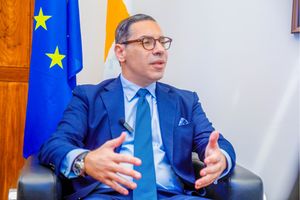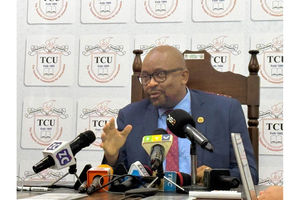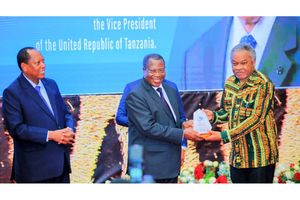‘Dar can reap more from land’

Proper investment in agriculture can more effectively transform the country’s fortunes. This, says an expert, will have direct bearing on ordinary people’s lives. PHOTO | FILE
What you need to know:
- According to Tanzania Petroleum Development Corporation, Tanzania has 43.1 trillion cubic feet of natural gas valued at $430 billion but one ICT expert, Mr John Kagaruki, says that rational applications of ICT in agribusiness can generate money than what is accrued from natural resources that are subject to depletion.
Rice alone has potential earnings of at least $540 million a year given the fact that about 540,000 tonnes of rice are required to feed Kenya, Somalia, Uganda, Rwanda and S. Sudan
Dar es Salaam. If proper technology were to be applied, Tanzania’s economy would gain more from agribusiness rather than what is thought may come from oil and gas, an expert has asserted.
According to Tanzania Petroleum Development Corporation, Tanzania has 43.1 trillion cubic feet of natural gas valued at $430 billion but one ICT expert, Mr John Kagaruki, says that rational applications of ICT in agribusiness can generate money than what is accrued from natural resources that are subject to depletion.
Speaking to The Citizen after presenting a paper before the forum under Masoko Challenge Project, Mr Kagaruki, who is also the founder of Nuru Infocomm, said rice alone has potential earnings of at least $540 million a year given the fact that about 540,000 tonnes of rice are required to feed residents of Kenya, Somalia, Uganda, Rwanda and South Sudan.
Mr Kagaruki said ICT under Masoko Challenge was envisaged to assist farmers in taping the huge market potential for agro-products ranging from grains to livestock through disseminating market data for various crops produced locally.
“In most cases farmers are discouraged to increase output due to marketing crisis. Increased crop production through exposing lucrative market sources under ICT tools can contribute significantly in raising agricultural production,” he said, adding that farmers must be mobilised to form strong associations at district and regional levels to create a lobby voice.
Speaking at the Masoko Challenge event, the co-ordinator of 2Seeds, Ms Sophie Hollingsworth, said under Masoko Challenge their organisation had a vision to assist farmers to improve crop marketing skills in order to cut poverty.
Ms Hollingsworth said that the presentation of Mr Kagaruki would be shared among project shareholders for wider dissemination and informing farmers to tackle crop marketing in the country.
The recent World Bank report on the performance of Tanzania’s economy shows that although the economy was growing at nearly seven per cent, this is yet to reduce poverty at substantial levels. The reason being that the growing sectors such construction, mining, and communications have no direct linkages with agriculture.




